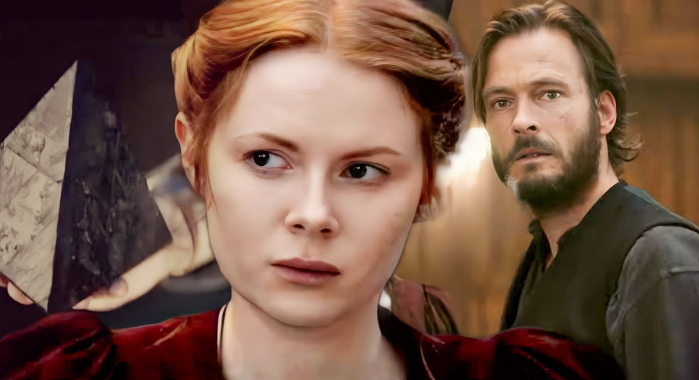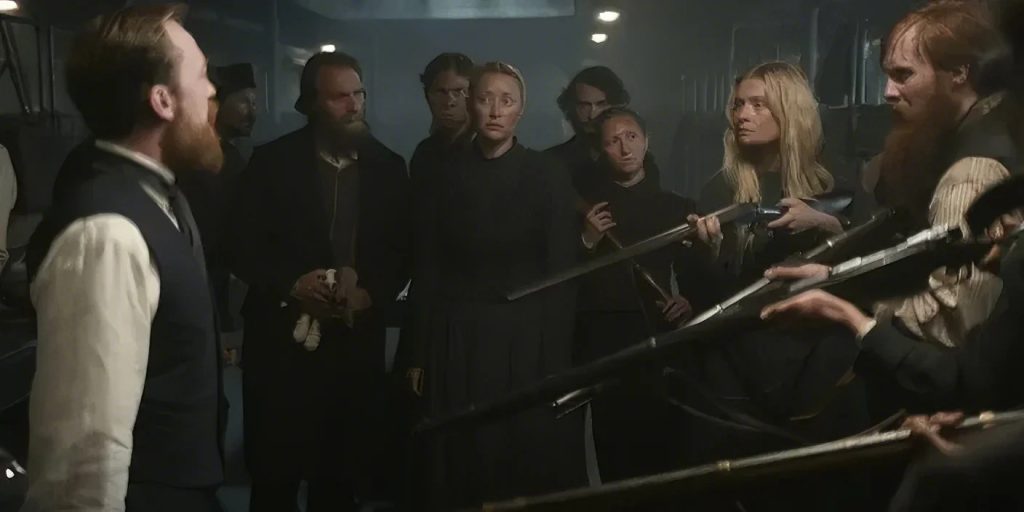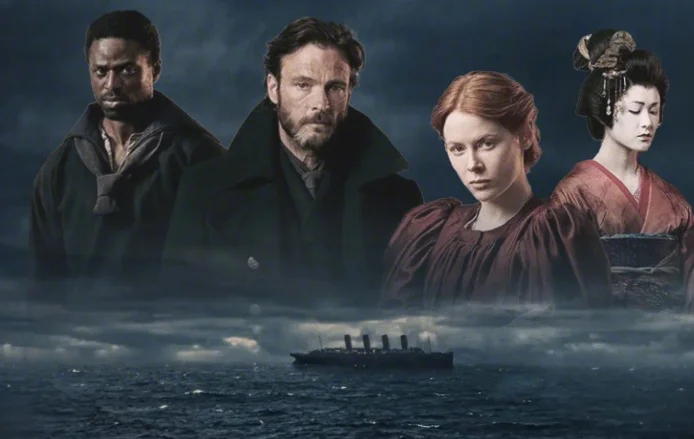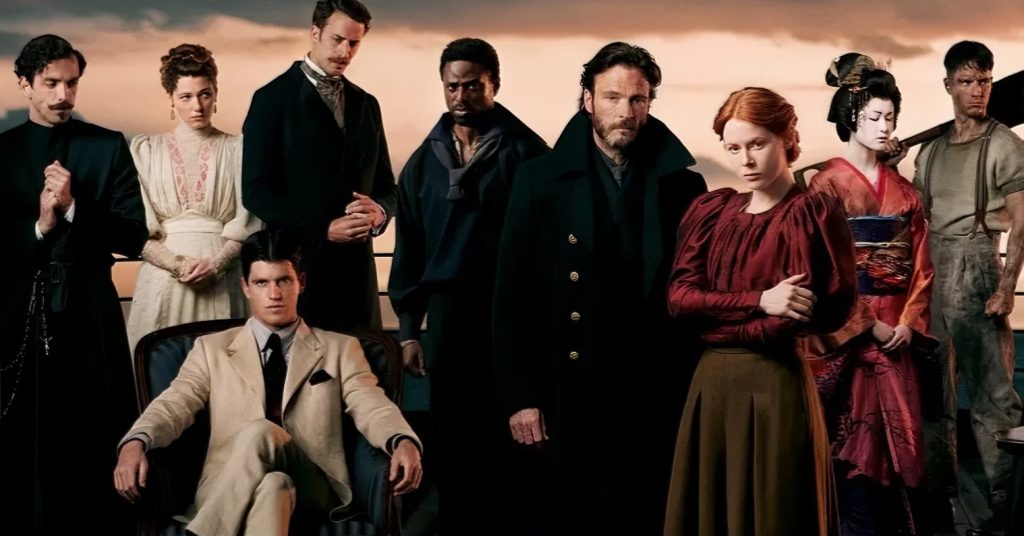1899 (2022)
1899 is a 2022 multilingual mystery-horror series created by Baran bo Odar and Jantje Friese, the minds behind Dark. Produced by Netflix and set aboard an immigrant ship crossing the Atlantic, the eight-episode first season unfolds as a psychological puzzle-box wrapped in historical fiction, horror, and speculative science fiction. With stunning visuals, global casting, and a narrative that folds in on itself like origami, 1899 is both a period piece and a mind-bending exploration of memory, identity, and perception.
Plot Summary
The story begins aboard the steamship Kerberos, carrying passengers from various European countries to the United States. Among them is Maura Franklin, a British neurologist with a secret. She receives a cryptic message: the Prometheus — a sister ship lost months earlier — has reappeared.
When the Kerberos changes course and locates the abandoned Prometheus, the crew finds the ship derelict, with no sign of life save for a mysterious boy locked in a cabinet. From that moment, the voyage descends into escalating paranoia, hallucinations, and inexplicable phenomena. Passengers begin to question reality itself — plagued by visions from their pasts, shifting timelines, and haunting symbols carved into the ship’s architecture.
As Maura and the ship’s captain Eyk Larsen try to uncover the truth, they realize they are trapped in a simulation far more sinister than a haunted ship. The walls of space and time collapse, revealing layers of illusion that none of them were prepared to confront.
Direction & Cinematic Style
Baran bo Odar brings a meticulous visual style to the series, using expansive tracking shots, cold lighting, and geometrically precise framing to build an atmosphere of dread and displacement. The ship is more than a setting — it’s a labyrinth, full of hidden corridors, looping rooms, and impossible architecture that mirrors the mental entrapment of its characters.
The color palette leans heavily into foggy blues, iron greys, and sickly greens, giving the series a dreamlike — or nightmarish — aura. Scenes shift from one character’s memory to another with fluid transitions, and the show’s multilingual dialogue (spoken in English, German, French, Spanish, Danish, and more) enhances the sense of fragmentation and cultural isolation.
The score by Ben Frost is an industrial, unsettling soundscape, full of distorted pulses and ambient dread, reinforcing the show’s constant state of existential anxiety.

Characters & Performances
Emily Beecham as Maura Franklin
Maura is the emotional and intellectual center of the series. Beecham plays her with icy intelligence and haunted vulnerability, as a woman fighting to understand her identity in a reality built on lies. Her performance grows more compelling as Maura unravels the truth about the simulation — and her own role in its creation.
Andreas Pietschmann as Eyk Larsen
As the tormented captain, Pietschmann brings gravitas and depth. Eyk is a man weighed down by personal tragedy and institutional mistrust, whose growing bond with Maura provides the show with its rare human warmth.
Supporting Ensemble
The show boasts an international ensemble, each member harboring secrets and backstories that feed the simulation’s structure. Miguel Bernardeau, Isabella Wei, Lucas Lynggaard Tønnesen, and others deliver strong performances, though some characters remain underdeveloped due to the sheer size of the cast.

Themes & Symbolism
At its core, 1899 is about perception and control. The simulation — revealed in stages — is a metaphor for systems of oppression, memory manipulation, and trauma loops. The recurring triangle symbol represents hierarchy, surveillance, and artificial structure, and the ticking pocket watch becomes a motif of frozen or manipulated time.
Each character’s personal tragedy is explored not just as emotional background, but as code: data used to trap them inside a virtual prison where they relive their guilt over and over. The ship, the ocean, even the stars are manufactured illusions — cages within cages, designed not just to contain, but to erase.
The series also explores colonialism, class division, and scientific overreach — hinting that this simulation may not be escapist fantasy, but a testbed for something far more disturbing.

Strengths
- Visually stunning production design with cinematic ambition
- Multilingual storytelling adds realism and global weight
- Atmospheric direction that echoes Dark, yet stands alone
- Richly philosophical themes on reality, trauma, and identity
- Intricate narrative puzzle with excellent world-building potential
Weaknesses
- Some characters feel neglected due to dense ensemble focus
- Pacing may frustrate viewers expecting quicker revelations
- Heavy reliance on mystery can feel opaque without resolution
- Ending raises new questions but withholds catharsis (especially post-cancellation)
Conclusion
1899 is not just a mystery — it’s a philosophical and sensory experience. Built like a dream and structured like a trap, the series challenges viewers to question everything: memory, identity, time, and even genre. It refuses easy answers, favoring psychological unease over emotional closure.
Though its cancellation after one season leaves many narrative threads unresolved, 1899 remains a bold and haunting work of science fiction — a ghost ship of the mind, drifting through fractured time, carrying the ghosts of people who no longer know who they are or what world they inhabit.

For fans of Dark, Inception, or Westworld, 1899 offers a visually dazzling and intellectually provocative journey — even if it never fully docks.
⭐ Final Rating: 8.2/10
Ambitious, enigmatic, and haunting — 1899 is a shipbound descent into dream logic and digital dystopia, as beautiful as it is bewildering.
#1899Netflix #BaranBoOdar #MultilingualMystery #PhilosophicalSciFi #ShipOfGhosts #SimulationTheory #CancelledTooSoon #EmilyBeecham #EykLarsen #DarkCreators
